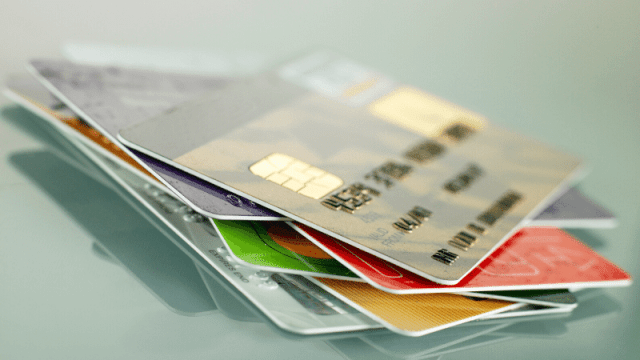Advertiser Disclosure
Personal Loan vs Credit Card: Which One Should I Get?
Updated On September 30, 2024
Editorial Note: This content is based solely on the author's opinions and is not provided, approved, endorsed or reviewed by any financial institution or partner.

One popular question that is asked often is “Credit card vs Personal Loan: Which one should I get?” The decision to choose a credit card vs. a personal loan should be easy, and here’s how to simplify your decision.
Credit Card vs Personal Loan: Overview
A credit card and personal loan offer different types of financing. Both a credit card and a personal loan are great tools to help meet your financing needs. However, you should be sure to use each for the right type of financing depending on your financial needs.
Credit cards are best for short-term expenses that you can repay in full each month. A personal loan is best or longer-term financing such as to finance a major purchase or to consolidate credit card debt.
Therefore, the decision between credit card vs personal loan is typically based on three factors:
- Your credit score and credit profile
- How much you would like to borrow
- When you plan to pay back your loan
- The interest rate
How does a credit card work?
If you are using a credit card to earn cash back or to earn travel rewards, for example, credit cards can be a great tool to get rewards. Similarly, you can use 0% APR credit cards to transfer credit card balances. If you are using a credit card for financing, then credit cards can be expensive because they often carry a double-digit interest rate.When you have a credit card, you will receive a credit card statement each month. You are expected to pay the minimum payment, which is equal to about 1-3% of the payment due. When you spend money on a credit card, you have to pay back the full total each month that you spend. If you don’t, then you will owe interest. Interest accrues on your credit card balance based on the average daily balance during the month (not based on the balance at the end of the month).
Credit cards are considered unsecured debt and revolving debt. When debt is unsecured, it means that debt is not backed by collateral. In contrast, a mortgage is a secured debt because it is backed by your home, or the underlying real estate. Revolving debt means that your credit card has a defined credit limit, and you can borrow and spend each month. The available credit line each month is based on how much you spend and repay.
Since credit cards have high interest rates, credit cards are best for short-term financing. You should pay off credit card debt each month to avoid interest charges and penalties.Credit cards are best to earn rewards such as cash back, travel rewards and hotel rewards. Credit cards are also popular for 0 APR so you can transfer credit card balances without owing any interest.
How do personal loans work?
A personal loan is an unsecured loan typically from $1,000 – $100,000 with fixed or variable interest rates that can be used to make a large purchase or to consolidate debt. A personal loan can be used for just about any reason, including credit card consolidation, medical expenses, home improvement, major life expenses, engagement ring, wedding, and honeymoon, among others.
When you borrow a personal loan, here’s how it works:
- You receive a personal loan upfront in a lump-sum
- You make fixed monthly payment for an agreed upon loan term
- Personal loans typically have a loan term of 3-5 years
- Personal loans usually have fixed interest rates
- Personal loans don’t have a prepayment penalty, which means you can pay off anytime with no fee.
The term “unsecured” means that there is no underlying collateral attached to the loan. For example, if you borrow a mortgage for your house, your mortgage is a “secured” loan in which your home is the collateral. If you default on your mortgage, your lender will then own your home.
Since a personal loan is unsecured, there is no underlying collateral attached to a personal loan. As a result, the interest rate on an unsecured loan such as a personal loan is higher than the interest rate on a secured loan such as a mortgage because the lender is assuming more risk.
However, interest rates on personal loans are often much lower than the interest rates on credit cards, which typically range from 10-20% (or higher). Depending on your credit profile, you may be able to qualify for a low personal loan interest rate and save money compared to a credit card. The interest rate on your personal loan will depend on several factors, which may include your credit score, credit history, and debt-to-income ratio.
How are personal loans different than credit cards?
When you compare a credit card vs personal loan, it’s helpful to understand the differences.
A credit card is a line of credit, which you can use and borrow anytime up to your credit limit. You then pay back the entire amount you borrowed each month, or you will be charged interest. So, a credit card is considered revolving debt because you can keep borrowing and repaying. If you don’t pay off your credit card, you will owe interest and carry a credit card balance. If you reach your credit limit, you will no longer be able to use your credit card.
A personal loan is repaid in fixed installments, so you pay the same amount each month. You also receive the entire personal loan amount upfront. The advantage of a personal loan is that you know how much you borrowed and how much you owe each month. In contrast, with a credit card, you can keep borrowing up to your credit limit each month so it can be harder to manage debt for some borrowers.
Both personal loans and credit card debt are unsecured. Since they are unsecured, the interest rate can be higher for some borrowers. However, if you have a strong credit profile, you can potentially receive a lower interest rate.
When is a credit card better than a personal loan?
A credit card is best to make small purchases or short-term purchases– and for earning rewards and cash back – that you can repay each month.
If you have good credit, you can make purchases on a credit card and then transfer the balance to a 0 APR card. This is a smart move because you won’t interest on the purchases for up to 12-24 months. So long as you repay the credit card balance in full before the introductory period expires, you won’t owe any credit card interest.
A credit card is also better than a personal loan if you plan to use the credit card to earn rewards, not necessarily as a financing tool. In this case, there is no need to borrow a personal loan and instead, you can start earning credit card rewards.
When is a personal loan better than a credit card?
Personal loans are best for larger purchases such as medical expenses, home renovations, major life expenses, or major life events such as an engagement ring, wedding or honeymoon that will take you more than a year to repay. A personal loan is also an excellent tool for credit card consolidation.
Personal loans do have an origination fee typically of 1-5% (whereas credit cards do not). An origination fee is a one-time fee that is paid in cash or from your personal loan proceeds. If you are paying off credit card debt, a personal loan can be a great tool because the interest rate on a personal loan often is lower than the interest rate on a credit card. Therefore, you can save money by borrowing a personal loan to pay off credit card debt.
You can also increase your credit score when you borrow a personal loan to consolidate credit card debt because you will switch from revolving debt (a credit card) to installment debt (personal loan). This will help improve your credit utilization ratio, which is a factor used to compute your credit score. Since a personal loan does use credit utilization like a revolving debt credit card does, your credit score can improve.
Should I consolidate credit card debt with a personal loan or credit card?
You can use a personal loan or credit card to consolidate credit card debt. However, they take two different approaches. If you think you will pay off your credit debt within 12-24 months, you could get a 0% APR credit card and transfer your balance to this credit card. So long as your repay your balance in full before the end of the introductory period, you will not owe any interest.
Therefore, a 0 APR card is a smart way to save money and defer on interest. If you think you will need more time to pay off credit card debt, you are better off getting a personal loan to consolidate credit card debt. This credit card consolidation calculator shows you how much money you can save through credit card consolidation with a personal loan. When you consolidate credit card debt, make sure that the interest rate on your personal loan or credit card consolidation loan is lower than the interest rate on your credit card.
You can also have both a personal loan and a credit card. You don’t have to choose between a credit card vs personal loan. Just remember that personal loans and credit cards are used for different purposes. You can take control of your financial life and save money when you use a credit card vs personal loan wisely.



